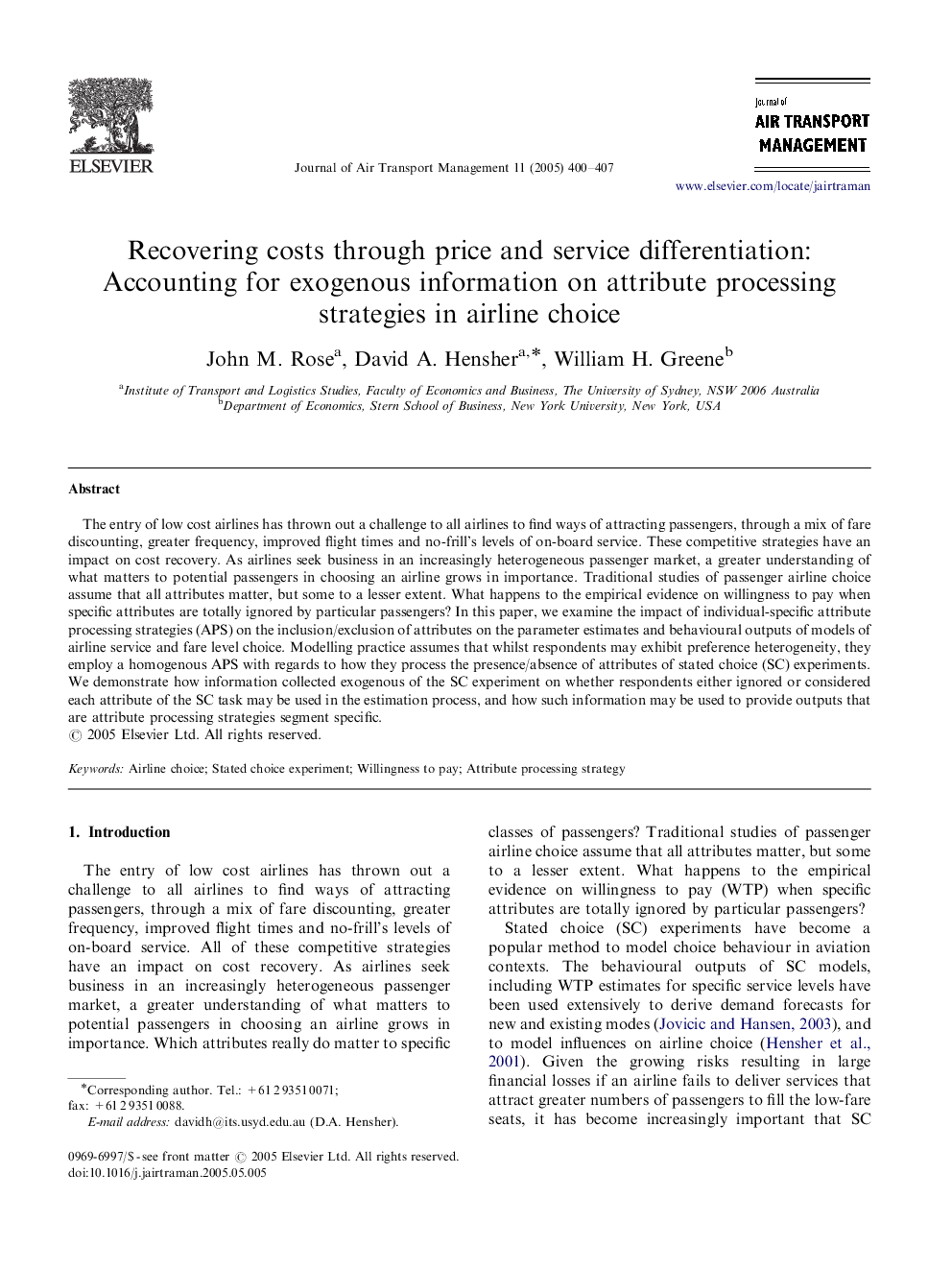| Article ID | Journal | Published Year | Pages | File Type |
|---|---|---|---|---|
| 10497399 | Journal of Air Transport Management | 2005 | 8 Pages |
Abstract
The entry of low cost airlines has thrown out a challenge to all airlines to find ways of attracting passengers, through a mix of fare discounting, greater frequency, improved flight times and no-frill's levels of on-board service. These competitive strategies have an impact on cost recovery. As airlines seek business in an increasingly heterogeneous passenger market, a greater understanding of what matters to potential passengers in choosing an airline grows in importance. Traditional studies of passenger airline choice assume that all attributes matter, but some to a lesser extent. What happens to the empirical evidence on willingness to pay when specific attributes are totally ignored by particular passengers? In this paper, we examine the impact of individual-specific attribute processing strategies (APS) on the inclusion/exclusion of attributes on the parameter estimates and behavioural outputs of models of airline service and fare level choice. Modelling practice assumes that whilst respondents may exhibit preference heterogeneity, they employ a homogenous APS with regards to how they process the presence/absence of attributes of stated choice (SC) experiments. We demonstrate how information collected exogenous of the SC experiment on whether respondents either ignored or considered each attribute of the SC task may be used in the estimation process, and how such information may be used to provide outputs that are attribute processing strategies segment specific.
Related Topics
Social Sciences and Humanities
Business, Management and Accounting
Strategy and Management
Authors
John M. Rose, David A. Hensher, William H. Greene,
